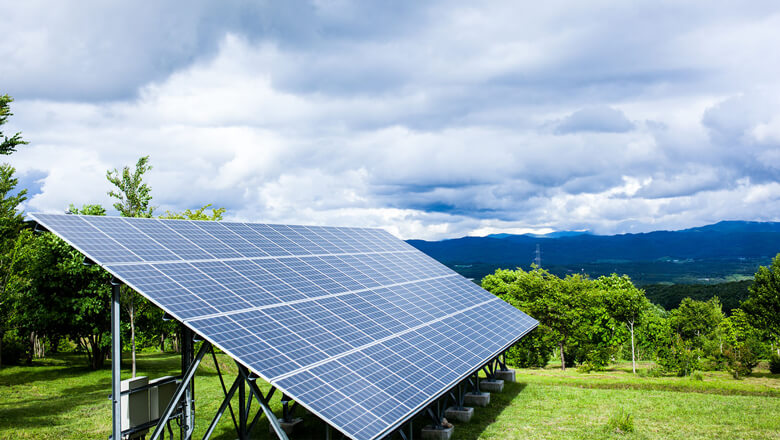Thinking About Installing Solar Panels? Here’s What To Know
The Costs
There are a wide variety of factors when it comes to the cost of solar panels. Both the equipment itself and the installation are things to consider. On average, solar panels will cost a homeowner around $16,000. They can run as high as $35,000 and as low as $3,500.
Your state may have incentive programs, especially in areas with more sunny days per year. It’s also important to do your research regarding the solar company you plan to use, as their prices vary. Of course, the size and shape of your home also determines the size and weight of the panels you can choose, as well as how many you will need. All of this helps determine the cost.
Location and Timing
There are different types of panels available to consumers. The most efficient are monocrystalline solar panels, but they’re also the most expensive. Other options include polycrystalline panels and thin-film PV cells, which are less efficient and cheaper by comparison.
Given the need to effectively reflect sunlight and capture electrical or thermal energy, your roof’s pitch is a factor in the cost. Solar companies will charge higher prices for installation when a roof is complex or especially steep and difficult to work with.
In terms of the calendar, the coming winter months may offer some upside. Contrary to what most people think, the winter is a great time to install. Because solar companies are typically less busy during colder weather, their installation price could be lower than during the summer.
Potential Savings
The key to evaluating whether or not solar panels make sense is in the potential for long term savings. After looking into the upfront costs regarding equipment and installation, determine if there are any recurring fees with your solar company or power provider.
From there, the most vital piece of information is your local electricity rates. The most savings will be achieved in areas where utility costs are on the higher end or middle-of-the-pack. That’s because solar panels don’t always eliminate your electricity bill entirely — they often just reduce the total amount owed by cutting down on consumption. If the installation process is properly managed, solar panels can translate to significant savings over time.
SoFi Loan Products
SoFi loans are originated by SoFi Bank, N.A., NMLS #696891 (Member FDIC), and by SoFi Lending Corp. NMLS # 1121636, a lender licensed by the Department of Financial Protection and Innovation under the California Financing Law (License # 6054612) and by other states. For additional product-specific legal and licensing information, see SoFi.com/legal. Equal housing lender.
Please understand that this information provided is general in nature and shouldn’t be construed as a recommendation or solicitation of any products offered by SoFi’s affiliates and subsidiaries. In addition, this information is by no means meant to provide investment or financial advice, nor is it intended to serve as the basis for any investment decision or recommendation to buy or sell any asset. Keep in mind that investing involves risk, and past performance of an asset never guarantees future results or returns. It’s important for investors to consider their specific financial needs, goals, and risk profile before making an investment decision.
The information and analysis provided through hyperlinks to third party websites, while believed to be accurate, cannot be guaranteed by SoFi. These links are provided for informational purposes and should not be viewed as an endorsement. No brands or products mentioned are affiliated with SoFi, nor do they endorse or sponsor this content.
Communication of SoFi Wealth LLC an SEC Registered Investment Advisor
SoFi isn’t recommending and is not affiliated with the brands or companies displayed. Brands displayed neither endorse or sponsor this article. Third party trademarks and service marks referenced are property of their respective owners.
SOSS22092102



